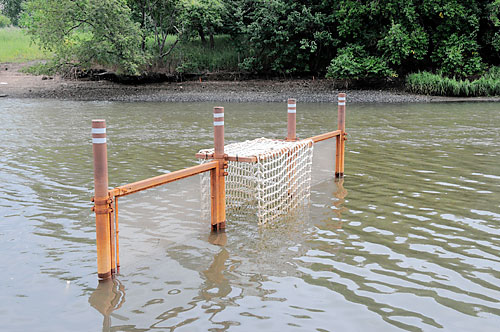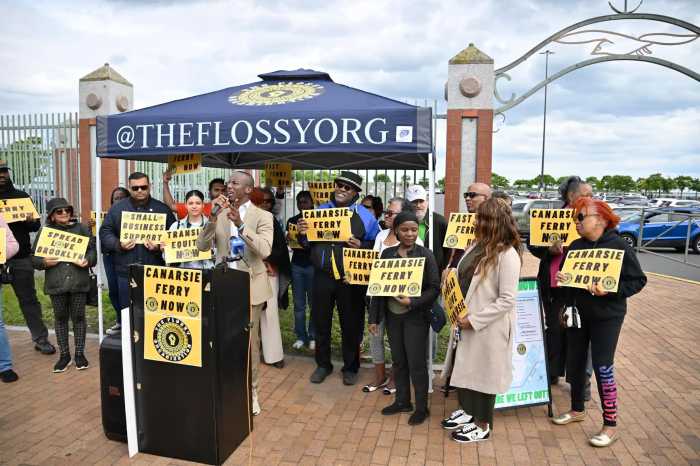A new mussel beach is coming to Canarsie — and it promises to give Jamaica Bay quite a workout.
The city is attempting to increase the population of ribbed mussels in the bay by the thousands in hopes of cleaning the notoriously dirty backwater using the little critters ability to filter H20.
The city hopes that strategically placed underwater nets in Fresh Creek behind E. 108th Street between Flatlands and Seaview avenues will improve water quality by capturing the creatures — which spawn on the bay’s shore and float through its channels — allowing them to reproduce in larger numbers.
The ribbed mussels will then work their miracle, city officials said, remove bacteria and other substances that pollute the ecosystem from water when it passes through them as they breath.
Since they either float along with the tide — ultimately ending up on the banks of the creek — they presently do little to help clean the bay.
That’s why the city’s wants to “trap” them in the middle of the creek: Department of Environmental Protection staffers have set up five sets of the nets that look like underwater fences. As mussels float by, some will latch onto the netting and multiply.
“Within a year we hope to have anywhere between 30,000 and 50,000 mussels attached to each net,” Department of Environmental Protection spokesman Angel Roman explained.
Once the mussels are in the center of the creek, they’ll begin scrubbing the water that passes through them. Over time, the clean water will spread out to the entire bay, said Department of Environmental Protection Commissioner Cas Holloway.
“We are well on our way to restoring Jamaica Bay to its rightful place as a recreational destination for New Yorkers and tourists,” Holloway said. “Building a ribbed mussel habitat to filter water in Jamaica Bay will give us critical information on the long-term viability of using natural techniques to restore and strengthen the bay’s ecosystem.
Holloway said that the $350,000 mussel project is part of the city’s plan to reduce nitrogen discharges in Jamaica Bay by 50 percent in the next 10 years.
Jamaica Bay has been getting a lot of attention of late. Earlier this year, the city flicked the switch on a brand new $404-million sewage treatment facility that will protect Jamaica Bay and Paerdegat Basin from noxious sewage overflows.
The city is also in the middle of a massive Jamaica Bay marsh restoration project that the big-box store giant Walmart, which is looking to break ground nearby, donated $100,000 to earlier this month.
























